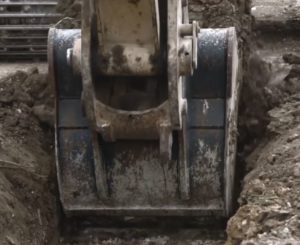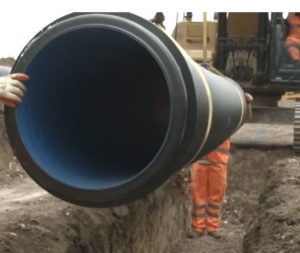Land Condemnation Lawyers in South Carolina

Most people are introduced to the concept of condemnation and eminent domain after receiving a letter from a government agency (or its lawyer) offering to purchase real estate at a fraction of the value. Most people in this situation do not realize how much an attorney can do to make sure their rights are protected during the taking process. While every case is different, a knowledgeable South Carolina land condemnation lawyer can work with you to fight the condemnation process or help you maximize the compensation you receive for your land.
If you receive a letter requesting permission to survey your property or an offer from a government agency to purchase your land, our South Carolina eminent domain lawyers are here to help. Time is of the essence in a land condemnation proceeding, so it is important to seek legal advice as early as possible if you learn that your land may be subject to eminent domain.
Contact our eminent domain and condemnation attorneys today for a free evaluation of your case.
Eminent Domain Attorneys in Fort Mill, SC
The South Carolina land condemnation lawyers at Nosal & Jeter, LLP believe that you should receive the maximum compensation allowed under the law when the government takes your land. This includes compensation for loss of appreciation, timber and future development. All economic factors must be considered, including the highest and best use of the property, as well as the affect on the value of your remaining property. Will access be impeded? Will zoning, signage, parking, or setbacks be affected?
It is our firm’s mission, as landowners and attorneys, to represent South Carolina property owners and to hold the government or other taking authority (such as an Electric Co-Operative) accountable under the Constitution for any land acquired by eminent domain. We will never represent a government agency or private company authorized to seize privately held land. Our law firm is dedicated to defending the rights of land owners when faced with a land condemnation action in South Carolina.
South Carolina Eminent Domain & Land Condemnation
One of the byproducts of the explosive growth in South Carolina is that our infrastructure needs to be improved in order to accommodate the influx of business and residents. New roads, power lines and water treatment facilities need to be built. Similarly, existing roads and lines need to be improved. Generally, this means the government or its agent will have to acquire land from a private owner to complete the project. Thankfully, the United States Constitution and the South Carolina Constitution do not allow the government to take privately held property without providing just compensation.
What is Eminent Domain?
“Eminent domain” is the process by which states and localities have the right to condemn and force the sale of private property; usually in order to serve a public purpose. In some situations, states or localities have given this power to administrative agencies and local utilities (Central Electric Co-Operative for example). Condemnation is the act of a government exercising its power of eminent domain. Traditionally, private property is often taken for public uses like building roads, sewer lines, power lines, schools, and bridges. If a land owner disputes that the taking is for a public purpose, a South Carolina Circuit Court Judge is required to decide the issue.
What is the difference between Eminent Domain and Condemnation?
“Condemnation” is the process by which the taking authority will acquire your land. This process is controlled by the laws of South Carolina. Think of it this way, eminent domain represents the power to take, condemnation is the process by which the government takes it and is used to determine just compensation for the taking. While the word condemnation may be derogatory in other context, as a legal term, the condemnation process does not assign any blame to the land owner or imply that something is wrong with the land.
Private Condemnation
Property can, in certain situations, be taken for private projects as well. Over the past few decades, the courts have interpreted what projects are for “public use” broadly. The courts have deferred the decision of whether or not something is for a “public purpose” to the individual state legislatures. For example, some communities now use the power of eminent domain to seize “blighted” neighborhoods for redevelopment into more upscale condominiums and apartments. In situations such as these, the state serves as the “middleman,” taking the private property from one person to sell or give to another in order to spur economic growth. Projects such as these are often referred to as “economic development zones.”
The Land Condemnation Process in South Carolina
 The South Carolina Eminent Domain Procedure Act under S.C. Code Ann. Section 28-2-10 et seq. sets out the process for land condemnation actions in this state. While states and localities have the right of eminent domain, the U.S. Constitution entitles home and land owners to “just compensation” for their property by way of the 5th and 14th Amendments. Determining the amount paid as just compensation is often the most disputed issue in a land condemnation action.
The South Carolina Eminent Domain Procedure Act under S.C. Code Ann. Section 28-2-10 et seq. sets out the process for land condemnation actions in this state. While states and localities have the right of eminent domain, the U.S. Constitution entitles home and land owners to “just compensation” for their property by way of the 5th and 14th Amendments. Determining the amount paid as just compensation is often the most disputed issue in a land condemnation action.
After the government decides to take property, it will enlist an appraiser to determine the fair market value of the land, which is the amount of money that the government is offering for the property. The appraiser will inspect the property and will review other elements that might affect property value. The government typically starts by trying to privately negotiate a price for the land with the owner. There is no requirement that the government’s first offer must be their best offer. Unfortunately, government agencies are often able to pressure landowners into accepting a pittance in exchange for the land. Land owners can either accept or reject the government’s offering price. The government agency will have attorneys and a legal team waiting on deck if you choose to reject that offer, so it is highly recommended to consult a lawyer experienced in South Carolina eminent domain law before deciding whether or not to accept the government’s price and to protect your legal rights.
Flexible Fee Structures for Land Condemnation Cases
Land is unique, so every South Carolina eminent domain case we take is different. We have represented land owners in eminent domain disputes with power companies, South Carolina Department of Transportation, water companies, and developers through private condemnation. Each of our clients had one thing in common: none were looking to sell part of their land to the government agency. We carefully evaluate each eminent domain case and consider the individual land owner’s goals for the process.
- Is your objective to receive the most compensation possible?
- Is your objective to receive adequate compensation and control what sections of the property will be taken?
- Is your objective to stop the government from proceeding with the project entirely?
Because success is measured differently for each case, we typically work on a results oriented fee structure. Often this means a contingency fee basis for clients looking to maximize the compensation for their land, meaning that we only receive a fee if we get you more than what you were offered. Since our fees are tied to your additional compensation, we offer a free consultation to review your case and determine if we can help increase the fair compensation offered for your property. Our goal is to make sure that you are fully compensated for the taking of your land, while considering all of the factors and consequences related to the taking, including the effect on the future use and development of your property.
Are you facing a land condemnation action in South Carolina?
If you have received a Condemnation Notice or are attempting to negotiate with the government for the price of your land, contact Nosal & Jeter, LLP attorneys today at (803) 351-3597 or E-mail info@nosaljeterlaw.com for a free consultation on your case.
Office hours by appointment: 9:00 am to 5:00 pm Monday-Friday.
Lake Norman Office
Fort Mill Office
*Our Fort Mill SC office is our mailing address for all written correspondence.
Copyright © 2025 Nosal & Jeter, LLP All Rights Reserved. Disclaimer: This is general information provided by Nosal & Jeter, LLP and is not legal advice.

